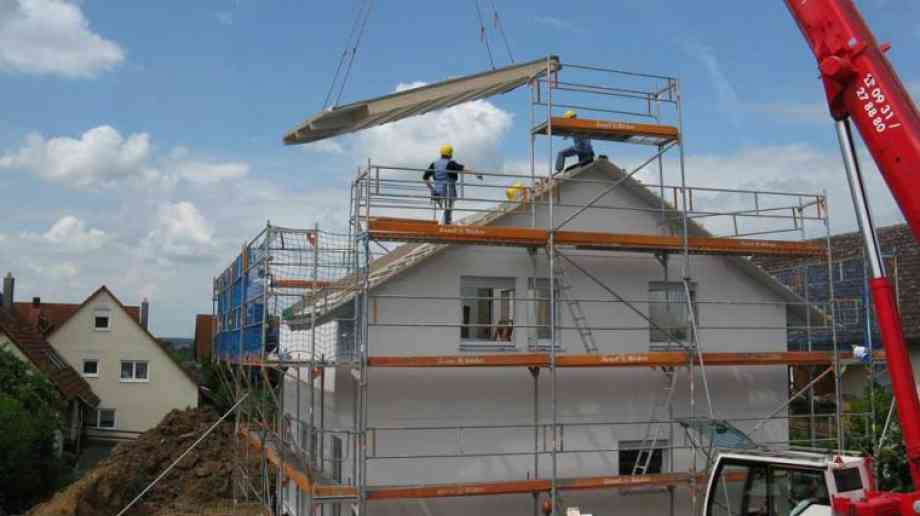Sue Robb of 4Children talks to Julie Laughton and Alison Britton from the Department for Education about the role of childminders in delivering the 30 hours free entitlement.
Planning reforms would have affected thousands of homes

The Local Government Association has revealed that communities could have missed out on nearly 30,000 affordable homes in the past five years if proposed government planning reforms were in place.
The government is considering removing the requirement for developers to build affordable housing on small sites, with ministers currently consulting on whether to apply this to sites where the number of homes is under either 40 or 50.
Analysis by Glenigan, commissioned by the LGA, shows that between 2015/16 and 2019/20, there were 119,505 private homes built on sites of 10 to 49 units. Based on an average of developers being required to make 25 per cent of new housing affordable, this would have included 29,876 affordable homes being built for either rent or purchase.
These homes would not have had to be included in developments under these plans, including more than 5,000 affordable homes in the south-east and almost 4,000 in the north-west.
Council leaders are concerned this plan could see the overall amount of affordable housing significantly reduced across the country. It also warns that such a threshold could encourage developers to ‘game the system’ by putting forward proposals of 39 or 49 or fewer homes respectively, on sites which are able to take more, to avoid affordable housing requirements.
This goes against the government’s ambitions to make changes to the planning system to ‘deliver at least as much – if not more – on site affordable housing as at present’. Therefore, the LGA is calling for councils to be able to determine local affordable housing thresholds, rather than being decided centrally, which fails to take into account the wide variation in housing markets across the country.
David Renard, Local Government Association housing spokesperson, said: “Proposals to exempt developers from having to build affordable housing on certain small sites are of huge concern. With rising housing waiting lists and record numbers in temporary accommodation, we desperately need to be building more affordable housing, not less. We need to build homes that are affordable to local people and help to reduce homelessness, rather than contributing additional funds to developers’ and landowners’ profits.
“These current proposals risk allowing developers to game the system by only putting forward schemes for fewer than 40 or 50 homes, and so avoid building any affordable homes at all. We want to work with government on reforming the planning system, which ensures that it is improved and strengthened, delivering beautiful homes and places for communities. But this also needs to see the requirement for affordable housing retained as a key element, by giving councils the power to determine what is right for their local area.”
More than a million households are on council waiting lists and almost 93,000 households are living in temporary accommodation, because of a lack of suitable low-cost housing.
Company Focus
Located in Bromley, Japanese Knotweed Eradication Ltd has been providing solutions in the treatment and removal of Japanese Knotweed (Fallopia Japonica) for over a decade. During this time we have mastered a repertoire of methods, from herbicidal treatments to landscaping solutions, tailored to address the unique challenges our clients face with this pervasive weed.
Event Diary
UKREiiF has quickly become a must-attend in the industry calendar for Government departments and local authorities.
The multi-award-winning UK Construction Week (UKCW), is the UK’s biggest trade event for the built environment that connects the whole supply chain to be the catalyst for growth and positive change in the industry.
Supplier Profiles
Geo Energy
At GeoEnergy Design, we're on a mission to disrupt the traditional way heating and cooling ha
Latest Features
Professor Harith Alani, director of the Knowledge Management Institute at the Open University explains how AI can be used for good and bad.
Alex Lawrence, head of health & social care, techUK sets out techUK’s Five Point Plan for CareTech.

















